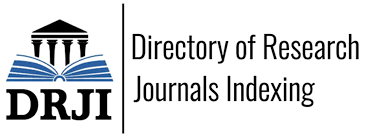The dynamics of Islamic marital jurisprudence in Islamic courts: the experience of the Kwara state and Zanzibar
DOI:
https://doi.org/10.18326/ijoresh.v2i1.43-67Keywords:
Islamic marriage, Islamic court, Zanzibar-Tanzania, Kwara state, Maliki school, Shafi’i schoolAbstract
Zanzibar is an island located in East Africa and part of the United Republic of Tanzania. In contrast, Kwara State is one of the states of the Federal Republic of Nigeria in the West Africa sub-region. Both regions have similar colonial histories and post-colonial experiences. Islamic Jurisprudence has undergone many reforms since the post-colonial era in Zanzibar Island of Tanzania and Kwara State of Nigeria. Islamic Jurisprudence is used in the adjudication process in Islamic religious courts in these two regions of Africa with a sizeable Muslim population. These courts essentially adjudicate Muslim personal matters, such as marriage, divorce, inheritance, wills, and endowment. The official jurisprudence of the people Zanzibar-Tanzania is Shafi’i jurisprudence. For the people of Kwara State of Nigeria, Maliki jurisprudence is recognized. Marriage is considered part of Muslim identity; therefore, applicable jurisprudence is necessary for a fair hearing on Muslim personal matters. The Muslim judges (qadis) play a laudable role in the justice system under Islamic Jurisprudence. This paper uses doctrinal, case law and empirical approaches for the discourse.
Downloads
Published
How to Cite
Issue
Section
License
Copyright
Authors who publish with Indonesian Journal of Religion, Spirituality, and Humanity agree to the following terms:
- Authors retain copyright and grant the journal right of first publication with the work simultaneously licensed under a Creative Commons Attribution License (CC BY-SA 4.0)that allows others to share the work with an acknowledgement of the work's authorship and initial publication in this journal.
- Authors have the right to enter into separate, additional contractual arrangements for the non-exclusive distribution of the journal's published version of the work (e.g., post it to an institutional repository or publish it in a book), with an acknowledgment of its initial publication in this journal.
- Authors are permitted and encouraged to post their work online (e.g., in institutional repositories or on their website) prior to and during the submission process, as it can lead to productive exchanges, as well as earlier and greater citation of published work.
Licensing
This work is licensed under a Creative Commons Attribution-ShareAlike 4.0 International License.









